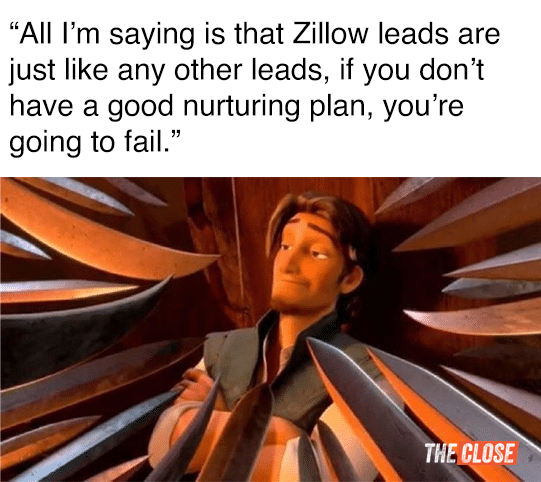Hello, new agents! Welcome to the jungle—also known as the wonderful world of real estate. At this point, you’ve already passed the real estate exam and hung your license with your brokerage of choice. You’re ready to start your real estate adventure—now what? The first few months of your real estate career are crucial in building a solid foundation for your business. Our new real estate agent checklist is here to help you during this time.
As a new agent, it’s important to realize that you don’t make any money until you’re at the closing table. Even after you get a client, you’ll still need to show them homes, get them under contract, and finally get to the closing table. In my experience, most agents start to see the fruits of their labor after roughly six months.
Let’s cut that time in half!
Your First Week
Utilize Your Brokerage
Get to know your brokerage—and remember why you chose them! Each real estate brokerage is unique. If you know what your brokerage provides (and what it doesn’t), then you’ll have an idea of what you need to take on yourself. What tools do they offer? Do they have an in-house lender or title company? How often are your sales meetings? This is your new workplace—get to know other agents, and attend the events and the training sessions they offer.
If you still need some help choosing a brokerage, check out our review of the best real estate companies to work for.






For a full list, check out our breakdown on 9 Services Smart Brokerages Are Offering to Attract More Agents.
Know Your ‘Why’—Finding Purpose in Your Real Estate Career
We all took that magic real estate journey for a reason—to be our own bosses, to have flexibility, and to feel connected to our careers, to name a few. Those reasons are empowering! As author and leadership expert Simon Sinek says, “People don’t buy what you do; they buy why you do it.”
You don’t need to have your “why” down pat right from the start, but as you progress in your career, you need to remember why you started down this path. Keep that mindset firm! This adjustment period can be rough, but understanding the reason you’re here will help.
Get Involved
As an agent, the idea of “work-from-home” becomes more of a “work-from-your-car” situation—and that flexibility is one of the greatest things about this career! However, that can also be a double-edged sword. If you’re not careful, this career can tend to be a bit lonely.
Having real estate and sales conversations is the best way to keep your mindset focused. Every agent, lender, and title rep had to start building their network just like this! Start filling out your calendar for the month with meetings with a few lenders, title reps, and other agents. Those partnership meetings and office events will help to ground your calendar and motivate you to have real estate conversations.
Also, try to work at your brokerage’s office at least one day a week, if they have a physical location. Most importantly, attend your brokerage’s sales meetings! These will be vital to learning the market, meeting other agents to hear about what they’re doing, and finding out about upcoming listings.
Pro Tip
Start building your partnerships! Opportunities come from your relationships in real estate.
As a starting point, you will need:
- A listing photographer
- A few preferred lenders you can recommend to your clients
- Title connections (some brokerages have relationships with title companies, but it doesn’t hurt to branch out to others)
“Show up. Show up to sales meetings, show up to as many in-person events as you can. The key to having more business is getting out of the house! It’s tempting to work from home and fritter around, but a big part of this business is getting ready, leaving the house, and finding opportunities. You never know where your clients will come from—could be your lender, sales manager, colleagues, or you could randomly meet someone! But you won’t know if you don’t get out there.”
Write Your Bio—Crafting a Compelling Story
You’re going to be using this bio in several places, and nobody tells your story better than you! It doesn’t have to be long. Remember the acronym “EAT.” Your goal is to showcase your expertise, establish your authority, and instill trust. Keep it simple—showcase your past experience, lean on your local expertise, and don’t be afraid to let your personality shine! Need some bio-writing tips? We got you.
17 Killer Examples of Real Estate Agent Bios (+ Templates)
If writing your bio is something you are struggling with, hiring a professional freelancer is an option. However, you’ll still want to make sure it’s in your voice!
Prepare Your Headshot
You’re going to need a headshot for your social media accounts and various software tools. We’ve all seen that headshot that makes you look twice and ask yourself, “How old is that picture?”
Be sure to wear an outfit that makes you feel (and look) professional and confident. Study other agents’ headshots to get to know what you like and what you want. Show off that smile!
Don’t overcomplicate it. You can use a service like Heroic Headshots for $50. If that doesn’t work for your budget, take a peek at our headshot tips!

Your First Month
Set Up Your Online Presence
Keep it basic here. You don’t need to set up your Google My Business, a chatbot, or anything more than what you can do in an afternoon. Remember, Rome wasn’t built in a day—and neither will your digital footprint. Start with updating your LinkedIn page and creating your Facebook business page.
Pro Tip
You don’t need to tackle it all this first week. Now that you’ve got your bio written, your headshot done, and an idea of why you got into real estate, you’re well on your way. It’s more important to establish your online presence quickly—get your name out there!
Don’t Be a ‘Secret Agent’—Promoting Your New Career
Most agents trickle out their career change announcement on social media. But think of how many people miss that post. If your sphere of influence doesn’t know you got into real estate, how will they ever know to ask you about the market?
Conversations about real estate are opportunities, and they won’t present themselves if you are tight-lipped about your exciting new career. Let people know!
Oftentimes, one of an agent’s first sales comes from that announcement. For example, one agent I’d been working with for two months to build her sphere sent out her postcards and made sure to make the calls to follow up. She struggled to see why she needed to take the time to personally connect with her sphere, since her Instagram had more than 8,000 followers. She called her aunt, and it turned out that her aunt had a friend over who just accepted a new job in another state and was looking for an agent! My client’s first sale came from her aunt’s friend, and that inspiration pushed her to see the value in nurturing her sphere.
People want to support you, so let them! I have lost out on more than one sale because I wasn’t consistent in reminding people that I’m in real estate.
I was recently at a wedding speaking with a family friend I’ve known for decades. She asked, “Are you still in real estate?” I told her I was. She said her daughter was closing on a home at the end of the month. It turns out her daughter wasn’t sure if I was still in the business, so she went with someone else who had reached out to her. I offered her my congrats, even though I was kicking myself for not being able to offer so much more.
It can be easy to fall into the time-sucking vortex that is branding and marketing! Try to keep things simple. We’re trying to get this announcement out quickly—in your first month. If you’re looking for social media templates and design to make your announcement easy and aesthetically pleasing, there are plenty of marketing companies choose from, but Agent Crate is a good one for new agents to look at.
Start Your Lead Generation
Never forget that real estate is an outside sales job. It’s a hustle—leads don’t grow on trees! Many new agents get overwhelmed with the options out there for lead generation. Your goal should be a minimum of 50 real estate conversations per week when you’re starting out.
Two quick tips: Play to your strengths and know what you’re willing to spend. As a hard-and-fast rule, remember that you’re either paying with your money, or you’re putting in the time. For example: Open houses don’t cost much to put together, but they sure can take up your Saturday! And if you don’t have a listing to host an open house, don’t be afraid to ask experienced agents if you can utilize one of their listings to host your first few!
Since most agents have more time than money, there are a few no-brainers to investigate first. To generate leads quickly, you need to have conversations—and lots of them. To return to my open house example, these events—if done right—can easily garner dozens of hot leads per month. Cold calling the neighborhood you just hosted the open house gives you something to talk about and frames your conversation around real estate naturally.
Pro Tip
Remember to call your sphere of influence as well… don’t just rely on social media!
Lots of agents think social media will bring them easy leads, but they often don’t understand the true time investment required to consistently post valuable content and engage with their audience. It’s a long haul to get leads that way, and you’re looking to get business quickly!
Cold calling is, by far, the fastest way to build your database and get in touch with potential leads. If you’re looking to make your dollar go further, REDX is a great choice for new agents looking to generate leads in this way.
Overall, only you can decide which strategies are best for you and your business. If you need some help making that decision, one of our veteran brokers and contributors, Sean Moundry, guides you through a dive deep into your personality and goals to set up your custom lead generation plan.
For some outside-the-box ideas, here are a few I like to help my coaching clients implement:
You can invite your sphere of influence to a fun movie night. Movie theaters will rent out a space for less than $250. Pass out a QR code with your website or social media handle to get that engagement!
Slybroadcast allows for easy mass voicemail drops. Use this with your farming neighborhood to provide value: Leave them a message detailing how many homes were sold in the neighborhood last month, what they sold for on average, and what current interest rates are.
Partner with a local small business or nonprofit to offer an exclusive deal or drive donations. This showcases your community engagement and provides you with a great reason to reach out to your database!
Looking for more tips? Check out our guide on 33 Real Estate Lead Generation Strategies and pick a few that resonate with you. Remember not to spread yourself too thin—any more than two or three and it’s hard to remain consistent and provide value.
Plan Out Your Business
Showing homes and writing contracts will be only a small piece of the pie in your day-to-day life as an agent. “Selling Sunset” and “Million-Dollar Real Estate Agent” highlight the glamor of being an agent, not the slog!
The old adage rings true for a reason: “Activity begets activity.” As an agent, keep in mind that at its core, this job is an outside sales job. You’ll need to generate leads, follow up with them, and eventually generate repeat business through referrals. An easy way to plan out your business is to work backwards—decide your income goal and then you can determine how many people you’ll need to talk to.
As a business owner, you’ll need to plan out your expenses as well. Don’t forget those tax deductions! You can use MileIQ to track your mileage. You can also easily track your expenses with a tool like Expensify.
Looking for an agent business plan calculator? We’ve done a deep dive into calculating your commission here!
GCI: What It Is & Why It Matters to Every Real Estate Agent
Systems & Software
Next on the checklist—and this is another step where new real estate agents often fall off—you need to invest your time, and potentially some cash, into your systems and software. After all, holding open houses every weekend won’t get you far if you don’t have a robust follow-up system in place.
Once you’ve figured out your budget, you’ll know what you have to spend on software that can help you run your business. Two services that I highly recommend for all of my new agent coaching clients are Homebot, which sends an email to your database keeping them on an automatic monthly email drip campaign with their current home valuation, and Boomerang Direct Mail, which partners with local businesses in your area to offer your prospects great deals. Both are inexpensive services that help you automate engagement with your sphere of influence.

When it comes to systems and software, the most essential is your customer relationship management (CRM) system. You might get a CRM through your brokerage. If not, there are plenty to choose from!
You’ll hear agents say this all the time because it’s true: The best CRM is the one you use. Check out our 2023 in-depth reviews and pricing guide here.
Even if you get a CRM from your brokerage, it still might pay to play around with other options to find the software you feel most comfortable using. If you’re looking for an inexpensive option to test out, check out our guide to the best free CRMs for real estate agents.
Consistency & Coaching: Honing Your Craft
Learn your scripts and what to say in client conversations. Be your own coach! Outline the activities you need to do and work backwards. Only you can truly hold yourself accountable to the work you put into generating your leads and building your business. Never forget that real estate, at its core, is an outside sales job. It’s a hustle!
As a real estate agent coach myself, the most common issue I help new agents with is time management. Time blocking your calendar is essential in creating consistency with your new career. Every week might look a little different, but that doesn’t mean you don’t have regular meetings and lead generation tasks! Those times need to be outlined on your weekly calendar. Need more help? We’ve spoken with 15 top producers to dive into their time management tips.
“Being an agent is very simple, but it’s very hard. Two things agents can do but don’t do are: One, hold an open house every weekend. Every weekend. Two, make 100 calls per day. FSBOs, your sphere, expireds—if you’ve got nothing going on or you have a new sphere, the most efficient way to get in front of people is with a phone call.”

Continuing Your Education: Level Up Your Skills
As any practicing agent can tell you, the licensing test doesn’t teach new agents how to handle a gap in the appraisal or walk clients through an inspection report. You’ll need to take your education and development into your own hands!
There is a wealth of information at your fingertips—your Realtor association and multiple listing service are excellent sources of information on local stats. Make sure you sign up for their newsletters or follow them on social media so you’re always up on the latest information on your market.
“I have no special talents. I am only passionately curious.”

Register for a conference! Real estate conferences are fun and educational networking opportunities. Oftentimes you will make national connections—great for interstate referrals! We’ve got a breakdown of the top industry conferences here.
Designations & Certifications
You might start seeing abbreviations after other agent’s names. These are designations meant to signal expertise to their niche audience and to other agents. Once you know you’re in real estate for the long haul, a designation is a great way to level up your skills.
After a year or two, you should have a better feel for the clients you’re targeting and working with. For example, if you find yourself working with the 55-plus community, you can obtain your Seniors Real Estate Specialist designation. For luxury listing agents, the Luxury Homes Certification designation is highly recommended. If you find yourself wanting to level up your negotiation skills, a Certified Negotiation Expert designation might be for you.
Overall, if there’s one I recommend above the rest, it’s the Graduate, Realtor Institute designation, or GRI. Obtaining your GRI will provide you with authority in the real estate industry as well as a leg up on your competitors. The National Association of Realtors (NAR) has a wonderful write-up into how a GRI designation can ignite your career. I would recommend scheduling out your GRI as soon as you’ve confirmed real estate is the career path for you. If you’re curious what else is out there, check out our article on which designations are worth pursuing.
Pitfalls to Avoid: Common Mistakes for New Agents
As a new real estate agent, there’s a lot to focus on! However, following this checklist should keep you on track. Once you get started, you’ll receive a lot of solicitations from people hawking services and tools. Keep your head down—you don’t need to be spending thousands of dollars on a new website, Google Ads, logos, or social media. You need to be generating leads and having real estate conversations.
Two more quick points here from a coach who has seen a lot of new agents come and go in this business:
And there’s your new agent checklist! Now that you’ve got your business set up, your online presence going, and scheduled your events, your calendar should be pretty full. Most new agents spend their days generating leads, attending sales meetings, showing homes, and learning their market. Time-block your calendar and get ready to do the same. Good luck!
Looking for more advice for how to succeed as a new agent? Check out our 15 new real estate agent tips!







Add comment